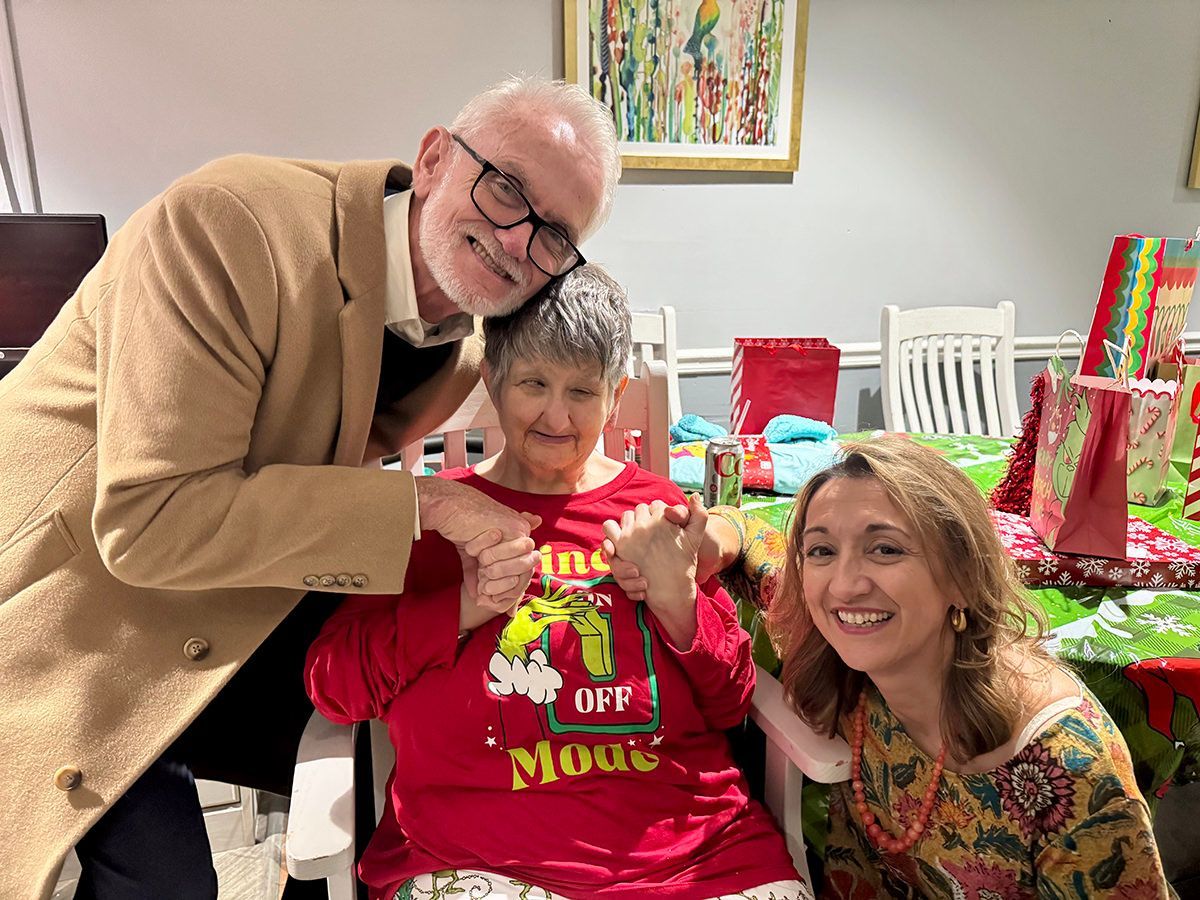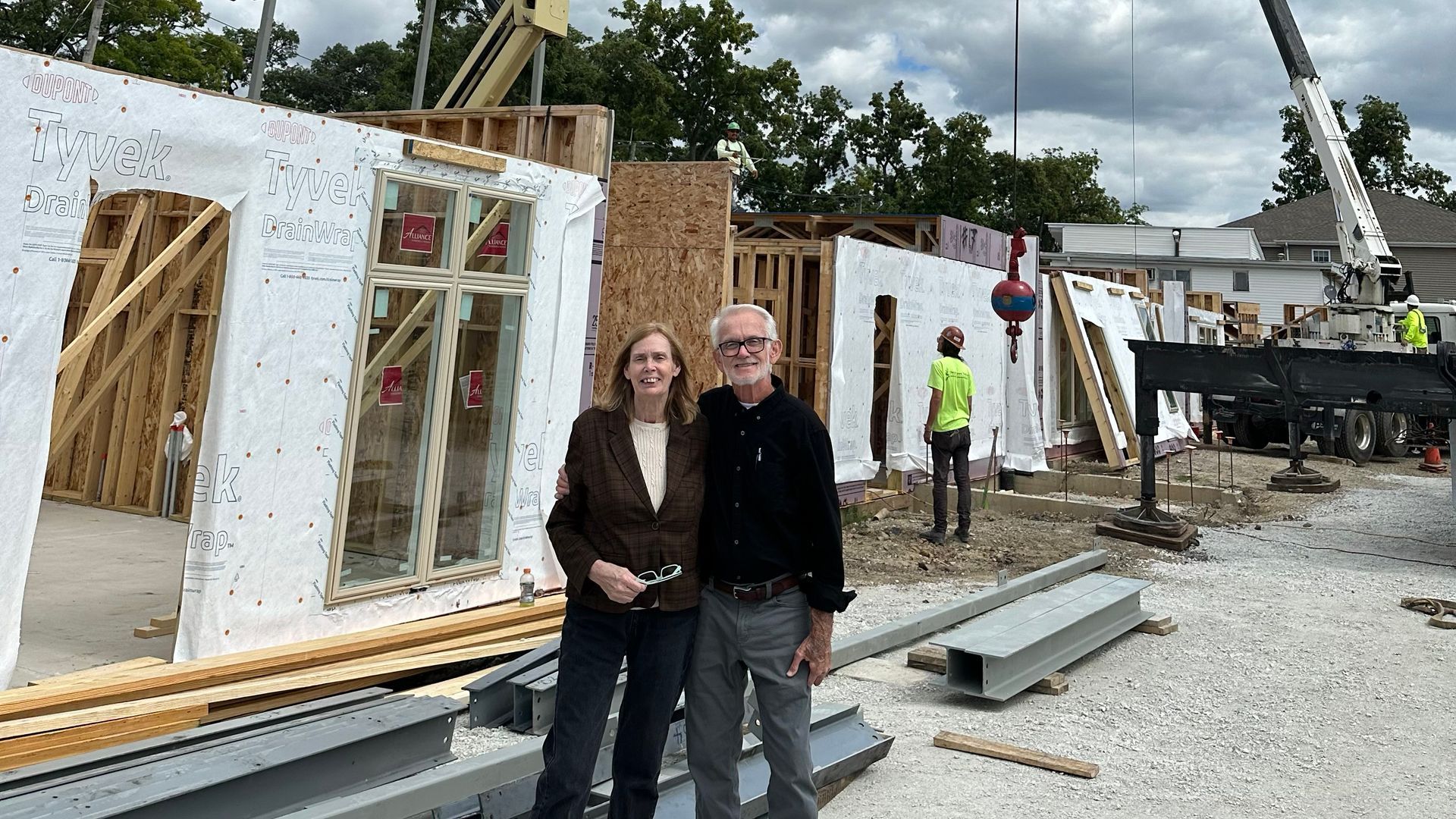I’ve got the best job in the world!
Gerry Beagles • January 1, 2023
Other Articles

Dear supporters and family members of Garden Center Services! Cindy and I want to wish everyone a happy, healthy, and safe New Year. We thought it would be helpful for this first Leaflet newsletter of 2026 to reflect back on some accomplishments our agency made over the past year. I want to share with you that while generating this list I truly experienced strong emotions such as pride, gratitude, joy, and weariness. The fact that we made these positive strides in a time that is so affected by needless disharmony, misinformation, and blatant self-interest is a true testimony to the commitment made by our wonderful employees to the core values of respect, empowerment, and compassion. 2025 Accomplishments We filled open leadership positions with top notch individuals: Ray Benaitis accepted the Director position for oversite of Supportive Housing, Quality Assurance, Thrift Shoppe, and Maintenance & Transportation. Elle Liberty accepted the Clinical Director position to support our Qs. Zach Apt accepted a position as our newest CILA Q. Kelly Drudi accepted the position to be our new onsite Nurse Practitioner. We also had some established staff move into new positions: Sheryl Kincinas accepted the Director position to support our clinical services including Nursing and the Behavioral Health Program. April Watkins accepted the position of ICF Administrator. In addition to these staff changes, here are other strides that were made: Acquired license for our own Behavior Health Clinic. Moved forward with construction of our first Supportive Housing Apartments and purchased the land for our second. Started our first Host Home and added a new CILA home. Continued moving toward our goal of all residents having a private bedroom - with five more added! Had our first Sunny Days initiative resulting in three days of celebration of the people we support! Updated two ICF bathrooms and flooring. Updated flooring, painting and windows at several CILAs. Completed significant renovations at our Moody, 50th, Otto and Lombard homes. Added an additional accessible bathroom at our Community Day Services building. Completed our first partnership with Moraine Valley for Leadership Development. Twenty-five people participated in this 5-month online program. There are many, many more! Now it is 2026, and there is much that we hope to accomplish this year. We are committed to making real changes in the lives of the people we serve, but we really need your help to make this happen. Many of you that receive this newsletter are already generous financial donors to our cause! As I’m wanting and needing to share our story with a larger audience, that’s where I could use your help. If you want to be part of the resistance to the growing lack of concern and support for all the people being marginalized and minimalized, please help me connect with those persons in your circle that you believe would be touched by our stories. Don’t hesitate to reach out to me at gbeagles@gardencenterservices.org. Thank you for everything! Gerry

Dear friends and supporters, We are reaching out today to share both the challenges and the bright spots that are shaping life at Garden Center Services this season. Due to the ongoing federal government shutdown, SNAP (Supplemental Nutrition Assistance Program) benefits have been temporarily put on hold. Judges have ordered the administration to resume the payments, even if partially, but they have not figured out how to at this point. For many people with disabilities, SNAP benefits are not just supplemental - they are essential. Without this vital support, many individuals and families in our community are struggling to keep food on the table. This crisis is being compounded by the rising costs of food and supplies, driven in part by the recent tariffs enacted under President Trump’s administration. Prices for basic groceries and essential goods have climbed sharply, making it more expensive for the individuals receiving our services to shop and more costly for our agency to provide the same level of assistance and care we always strive for. Despite these serious challenges, we continue to find reasons for joy and gratitude - because the people we serve, and those who support them, show us every day that perseverance and hope are stronger than hardship. In October, we celebrated the opening of two new group living homes, where residents are thriving in supportive, inclusive environments. The individuals living there have shared their excitement about their new homes, new friendships, and the positive changes these opportunities have brought to their lives. We’re also thrilled to report that construction of our Permanent Supportive Housing project, the Garden Apartments, is right on schedule. The building is progressing beautifully and is expected to welcome tenants by May or June of next year - a major milestone in our ongoing mission to expand accessible, affordable housing options for people with disabilities. Our Second Chance Thrift Shop has also been a wonderful source of community connection and vital support. The shop has provided much-needed revenue that helps sustain our programs and services - and it’s also a joyful place where volunteers, shoppers, and staff come together for a great cause. As the holidays approach, we invite you to shop for your Christmas décor at Second Chance or donate a few hours of your time as a volunteer. Every purchase and every helping hand makes a real difference. And in September, our community came together for our annual Walk n’ Roll event - a day filled with laughter, friendship, and purpose. Thanks to your generosity, the event raised over $50,000 in much-needed revenue to support our programs and services. As we approach the holiday season, we are also looking ahead to Giving Tuesday on December 2nd, a national day of generosity when individuals are encouraged to support the charities that matter most to them. Especially this year, we would be deeply grateful if you could find the time to make a contribution to Garden Center Services. Even more, we invite you to consider becoming a monthly donor, helping us sustain our mission year-round and continue providing life-changing support to people with disabilities. These successes remind us that the best way to respond to difficult times is through action, compassion, and joy. Each achievement - each person given a home, each volunteer who steps up, each dollar donated - helps us build a stronger, more inclusive community. We are deeply grateful for your continued partnership and support. Together, we can meet these challenges head-on and ensure that the people we serve not only survive, but thrive, with dignity and happiness. With heartfelt thanks, Gerry

In a couple of weeks, service providers like ours will be celebrating Direct Support Professional Recognition Week (September 7th – 13th), during which we put extraordinary time and effort toward recognizing Direct Support Professionals (DSP) for the incredible work they perform. I am so uplifted by the respect and compassion I observe every day as the staff work with the individuals we serve. I think the fact that many of us in leadership positions at Garden Center started out as DSPs provides us with the insight into how strenuous their jobs can be at times. DSP Recognition Week is a great opportunity to focus on the incredibly committed, attentive direct support workforce that is the heart and backbone of services for the individuals with disabilities that Garden Center cares for. The majority of the agency’s employees are DSPs, and many of them have been with us 5, 10, 15 years, or longer! Though this week is established nationally to recognize DSPs, we try to express throughout the year how vital and valued our employees are. We are asking for your help to make this the best Direct Support Professional week ever, and invite you, the parents/guardians/families/& friends to join us in the effort to really show our gratitude and respect to these individuals. Inside the Leaflet you’ll find an article sharing ideas on how you can help. We’re also looking for any gift cards that you would like to donate which will help with the many raffle drawings that we hold during the week. Taking care of our staff so they can care for the people that attend our programs is weighing on me heavier than ever. As I shared with you in my last articles, changes that are being made in Washington is making it more difficult and riskier to commit ongoing funding to certain positions/programs at the agency. As we prepare to deal with the impact of projected cuts to our budget I am focusing intensely on targeting and amassing additional discretionary resources to sustain our quality programs. This is where YOU come in. I greatly enjoy speaking passionately about Garden Center Services and the awesome individuals we support, but I need new people to tell our story to. I will deeply appreciate any contacts that you would share with me to help this effort. Contact me directly at 708-560-4400, or at gbeagles@gardencenterservices.org. Thank you so much. Gerry

